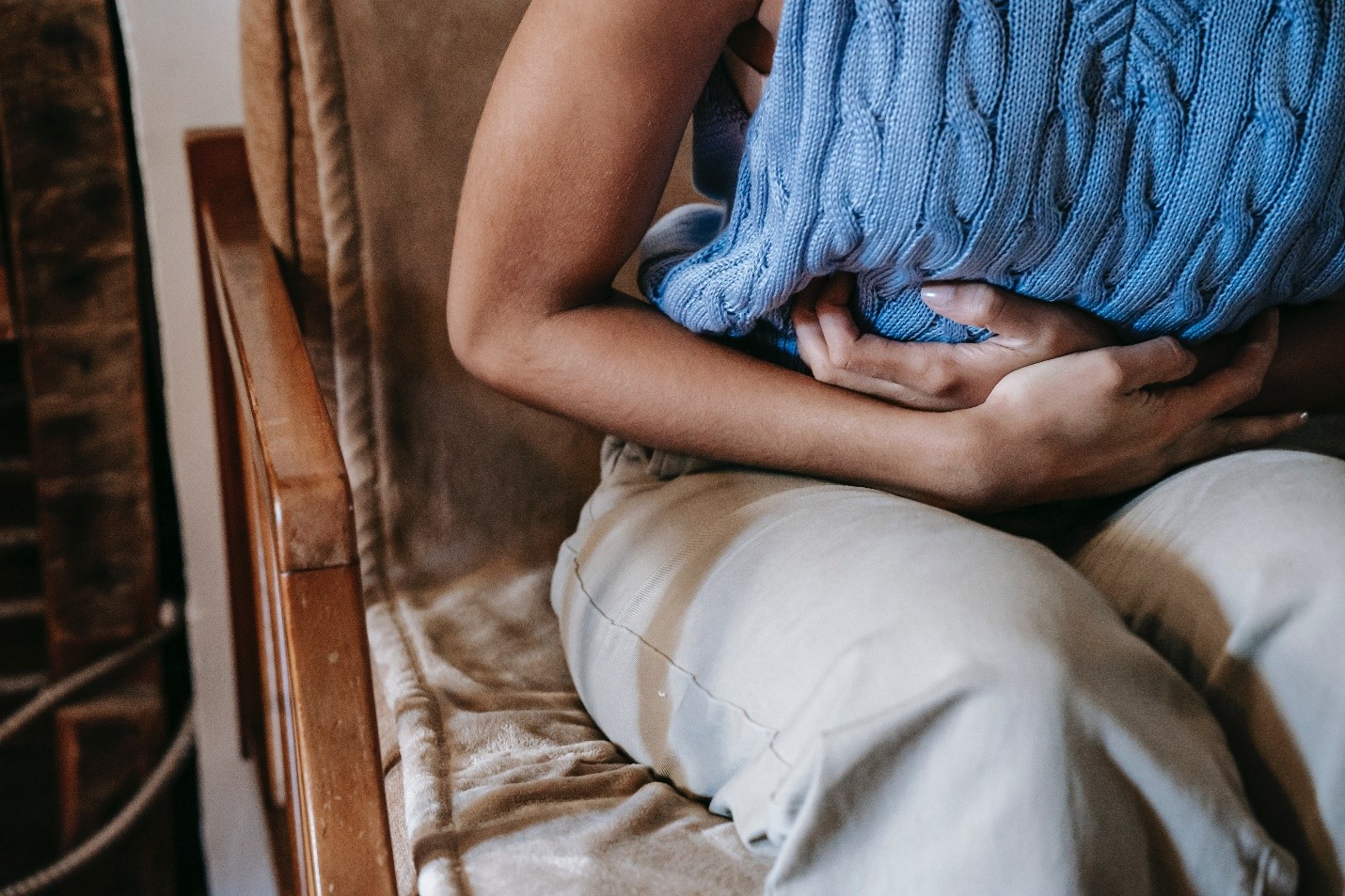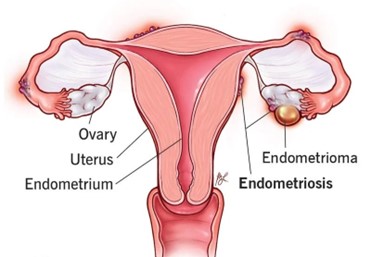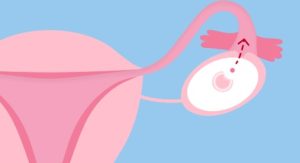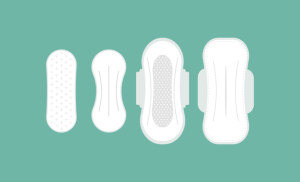Every woman knows the discomfort of before-period cramps. But what is it that causes these cramps?
The most common type of period cramps are caused by primary dysmenorrhea. The cause of this pain is generally an excess of prostaglandins, which are substances produced by your uterus. These substances produce cramps by contracting and relaxing the muscles of your uterus.
The cramping may begin a day or two before your menstrual cycle. It usually lasts a few days; however, it might last longer in some women.
Let’s explore the science behind cramps before periods, also look at some simple steps you can take to reduce the severity of cramps and make your period a little more bearable.
Keep reading!

Why do You Get Cramps Before Periods?
Many women may get cramps in their lower abdomen before their period, others may also complain of severe premenstrual discomfort or lower back pain.
So, why do you get cramps before periods? How to deal with them?
Keep reading to find out and embrace womanhood!
-
Hormonal Imbalance
Cramps before your period can be caused by a hormonal imbalance. Hormones are chemicals in the body that help regulate various bodily functions, including menstruation. When there is an imbalance in the hormones, it can lead to cramps before periods.
Common causes of hormonal imbalances include Polycystic Ovarian Syndrome (PCOS), endometriosis, and fibroids.
By understanding the possible causes of cramps before your period starts, you can take steps to manage the symptoms. Keeping track of your menstrual cycle, eating a balanced diet, and avoiding caffeine, alcohol, and smoking can help keep your hormones balanced and reduce cramping. In some cases, medications may be prescribed to help with the symptoms.
-
Endometriosis
Endometriosis is a disease in which tissue identical to the uterine lining develops outside the uterus, causing discomfort or infertility. Endometriosis affects approximately 10% (190 million) of women and girls of reproductive age worldwide.

When it comes to cramps before your period, endometriosis can cause the most pain. This is because the displaced endometrial tissue continues to act like it normally would inside the uterus — it thickens, breaks down, and bleeds each month during your menstrual cycle.
The problem is that since the tissue is not located inside the uterus, it has no way to exit your body like a normal period. The inflammation and irritation of the displaced tissue can cause extreme pelvic pain and cramps.
According to the World Health Organization, endometriosis can affect up to 10% of women with ovaries who are of reproductive age.
If you experience such severe pelvic pain and cramps before or during your periods, consult a doctor and get the most comfortable sanitary pads for some relief.
-
Fibroids
If you have chronic period pain or discomfort that intensifies with age, it might be an indication of uterine fibroids.
Fibroids are benign tumors that grow in the uterus. The uterus is the organ that houses the fetus during pregnancy. Fibroids can cause before period cramps when they press against other organs or tissues in the pelvic region.
These growths are hardly ever cancerous, yet they’re quite common – according to the U.S. Department of Health and Human Services, up to 80% of women have fibroids by the age of 50.
The common symptoms of fibroids include:
- Pain in the abdomen or lower back
- Pelvic discomfort and cramping
- Painful intercourse
- Heavy menstrual flow
- Long, repeated periods
- Bleeding between menstrual cycles
-
Unbalanced Diet
It’s important to recognize that certain dietary components can contribute to the intensity of menstrual cramps. Foods high in fat and sugar, such as processed snacks and fast food, can cause inflammation and lead to increased cramping.

Additionally, skipping meals or not eating enough can cause hormones to be unbalanced which can trigger menstrual cramps.
To reduce your before-period cramps, it is important to maintain a balanced and nutritious diet. Eating a diet rich in fruits, vegetables, and lean proteins will provide your body with the proper nutrition it needs.
In addition to this, limiting processed foods and reducing sugar intake can help reduce inflammation, promoting better health and decreasing cramping. Incorporating fiber-rich foods such as oatmeal, legumes, and whole grains will also help with digestion and reduce cramping.
Lastly, drinking plenty of water helps keep your body hydrated and helps flush out toxins that may be contributing to cramping.
So, when your period is about to approach, stock up on embrace sanitary pads rather than buying handfuls of chocolates and candy bars.
How to Deal with Cramps?
To begin, you must determine if the spotting and cramps before your period are due to your period or because of a major gynecological condition. Please keep in mind that if you suddenly feel severe cramps before your period, you should consult your doctor.
It is critical to eat well in order to keep your uterus healthy. In addition to this, you should add vitamins, calcium, and minerals to your diet as your diet also plays an important role in before-period cramping!
Vitamin D: Adequate vitamin D levels assist to minimize inflammation in the body, as well as the psychological (such as depression) and physical symptoms of PMS and menstrual discomfort.
Furthermore, for the relief of PMS symptoms such as cramping sensations in the lower abdomen, backache, bloating owing to water retention, and mood swings, at least 50,000 IU/week of Vitamin D is suggested.
Calcium: Calcium is also required for cramp relief before a period. While some people are allergic to milk and have difficulty digesting milk or other dairy products such as yogurt and cheese, these people prefer a non-dairy diet and fall short of their daily calcium requirements.
To compensate for the missing minerals in the body, take 1200 – 1500 mg of calcium daily, in the form of widely available supplements.
The fact is, several observational trials indicated that calcium supplementation is related to lower rates of many period pains and cramps.
When to Worry or Seek a Doctor?
You should call your primary healthcare physician as soon as you anticipate significant cramping discomfort before your period, there may be occasions when you are unable to make a simple appointment.
Also, if you are feeling burning or pinching pain rather than the usual constant aching and dull discomfort call your doctor. Moreover, if the discomfort is accompanied by severe nausea, headaches such as migraines, and dizziness, get medical attention.
Cramps before periods are a common and often painful experience for many women. While the exact cause of these cramps is not always clear, there are several factors that are known to contribute. These include hormonal imbalance, PCOS, fibroids, endometriosis, and even diet.
It’s important to discuss your symptoms with a doctor in order to get to the bottom of why you’re experiencing cramps and how best to manage them. Additionally, making lifestyle changes such as eating healthier, exercising regularly, and managing stress can also help reduce the cramping intensity.
Ultimately, understanding the causes of before-period cramps can help you make informed decisions about how to best manage your menstrual cycle. So, it’s better to keep an eye on your symptoms before it gets too late! And don’t forget to get the right embrace womanhood pads when you start feeling symptoms before periods.







